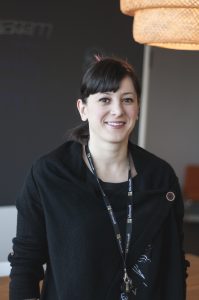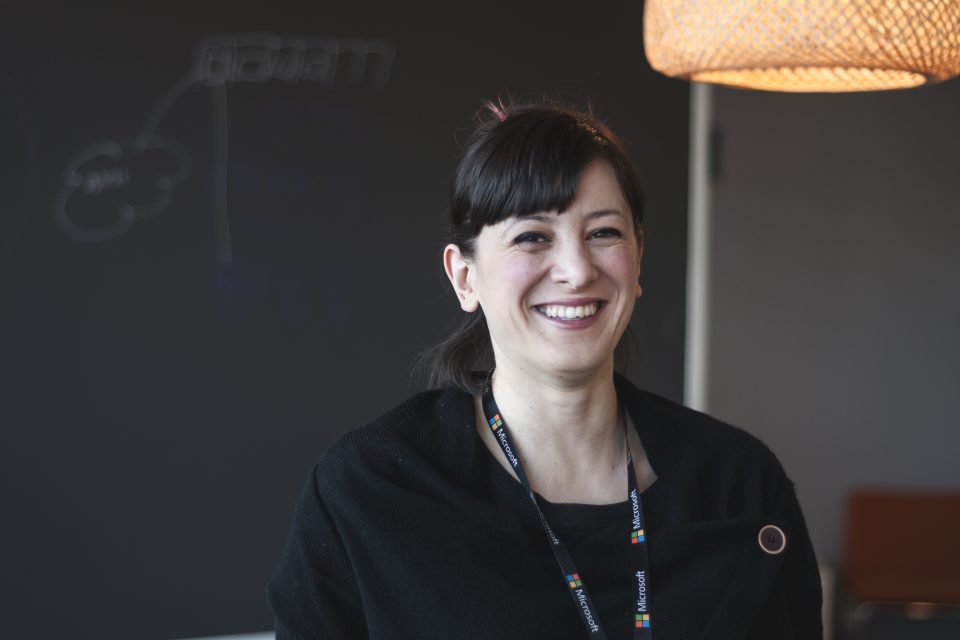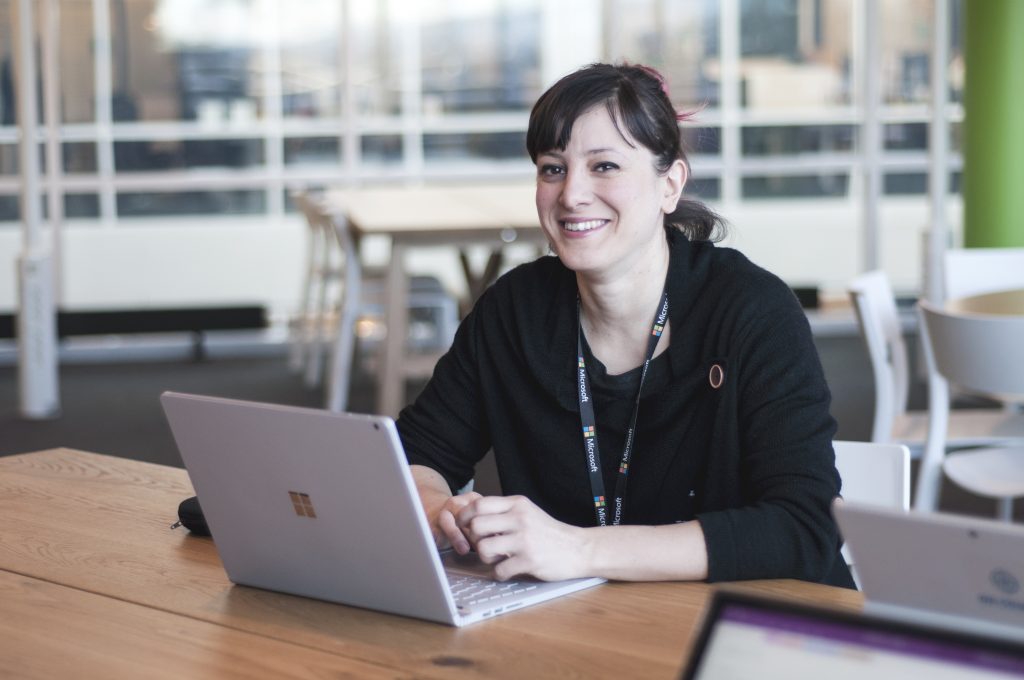We all need to do more to encourage young girls and women to embrace science, technology, engineering and maths (STEM) subjects – and one important piece of the puzzle is the importance of role models.
Microsoft’s research has shown that exposure of positive female role models to young girls is a major factor influencing their passion for STEM, alongside practical, real-world examples that show off the positive difference that STEM fields can make.
As part of #MakeWhatsNext, we’ve profiled a number of female Microsoft employees across Europe to show that inspiration is all around us. Asu Deniz is one such person.
A Data and Artificial Intelligence Advisor and Microsoft AI Ambassador in Norway, she shares her experiences, challenges and passions below, in her own words…
Read more inspirational profiles at our Girls in STEM hub
Tell us about your journey to Microsoft
Microsoft has always held a special place for me while building my skills over the years, ever since using Windows 3.1 for the very first time when I was five years old (back in 1993!)
After spending many years as a Watson Architect/Technical Seller at IBM, I came to realise that there was more to the world of artificial intelligence and IoT that I was experiencing, and I became more and more intrigued by these technologies, and Microsoft Azure as a platform.
One day, I received a phone call from a recruiter who was searching for a software architect with a background in AI, and we hit it off instantly. I joined Microsoft at a very inspiring time, in the middle of exciting changes. I took a specialist seller role which allows me to interact with customers while building up new skills around Azure Data.
What were you interested in as a child – what did you want to be when you were older?
Ever since I was a child, I loved the idea of solving problems, especially using technology to help make the world a better place.
Growing up, I had all sorts of interests from genetics and robotics, to sci-fi and music. My family is an interesting mix of engineers and musicians, and they were my source of inspiration in my early years.
At school, I was the weird kid – the one who sat at the back of the classroom, reading strange sci-fi books. I remember becoming more and more immersed in topics like robotics, software development, and smart systems. In the end, going to engineering school was an obvious choice!
Feeding the curiosity of my inner child is also something I’ve always believed in, by using new gadgets and technology to help solve some of the problems humanity faces. I believe it’s very important to feel that we’re all doing something positive that will have an impact on future generations.
As a Data & AI specialist at Microsoft, I have the chance to think about solutions for everything from healthcare and agriculture, to energy, which provides me with a great sense of achievement.
What advice would you give young women/girls about pursuing STEM subjects and a career in technology?
I understand that there are challenges for young women and girls in STEM, but at the same time I believe that a person’s attitude and personality can overcome the challenges in any environment.
As a woman in STEM myself, I think that the real challenge begins when you embark on your work journey. I found that university environments tend to be more open and tolerant to failure, with more respect for the learning process.
The best thing I learned in engineering school was that learning is a process that never ends – and one that starts with you. Taking the responsibility to build skills around your vision is equally important for everyone. Having said that, in my life I have experienced environments where women have had a smaller room for error, thanks to people’s biases. At the end of the day though, having a vision – having conviction – allows you to overcome any challenge.
How important are role models for inspiring and guiding the younger generation? Who were your roles models/inspiration as you were growing up?
I believe that we, as humans, can use culture to reprogram our minds. Seeing women in science and business roles in the media can give girls the courage to take up the challenge of STEM. I was lucky to have strong female role models in my family so I didn’t need to turn to celebrities or external influences, but I still think it’s really important that we all encourage girls to go to engineering schools and enjoy other professions. Erna Solberg, the current prime minister of Norway, also inspires me quite a lot – she is an extremely competent politician.
Why do you think diversity is important?
I worked in organizations with varying levels of diversity and have found that the more diverse an organization is, the less opinionated people are. Diverse organizations give their employees room for expressing ideas and opinions.
At Microsoft Norway we are trying our best to hire diverse people to spice things up a bit! Our work at Microsoft requires a wide range of in-depth product, industry, and market knowledge, so it’s definitely an advantage to mobilize every single muscle in the organization by including different people and diversifying the culture.
What would you say are the keys to success?
Never stop learning, and never be afraid to fail – that’s really important for long-term success. In the short term, collaboration, keeping your inner child happy, being curious about your role, and having a genuine interest in helping others, is key.
 What are you currently working on?
What are you currently working on?
I’m currently working with one of my retail customers in Norway to create an AI environment which will allow them to build intelligent bots that can understand customer requests about products and store opening times. We also have use-cases such as predicting buyer behaviour using Azure Machine Learning services. It’s really exciting to see what other areas they can use chat bots and machine learning in too.
What technology are you most looking forward to in ten years’ time?
I really believe that IOT, AI, VR and blockchain technology, combined together, will completely change the way our civilization works, for the better. Giving people an environment that will support their needs will no longer be a problem. We will have more robots, combined with machine learning, that will help with production and the distribution of goods.
The availability of information will also push governments and companies to be more transparent, and basic income will no longer be a dream, with systems and robots taking over more areas. I also think we’ll see more people working in robotics and the ethics associated with these changes.
What do you enjoy doing outside of work?
Out of the office I’m a part-time musician, hiker and a yogi. Yoga is my ‘hit refresh’ button, and I enjoy going on walks in the nearby forests and lakes. It’s really important for me to disconnect so that I can recharge and come back stronger!





